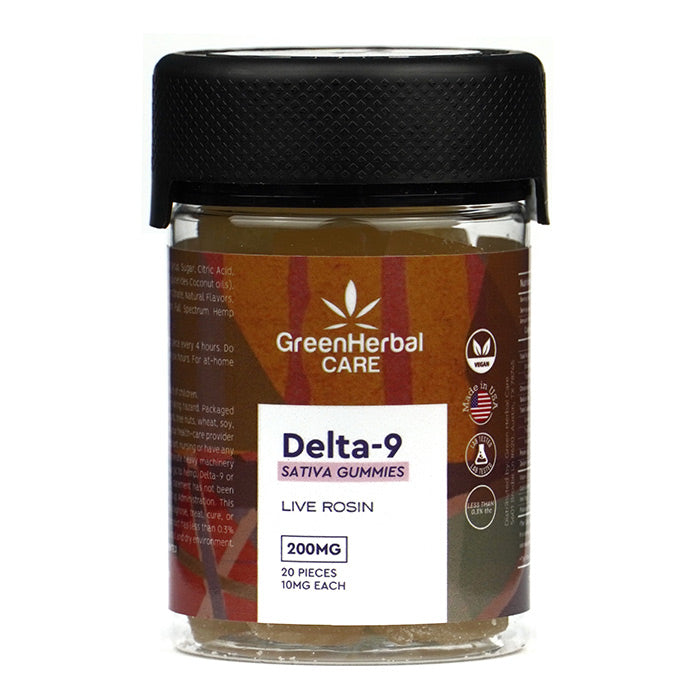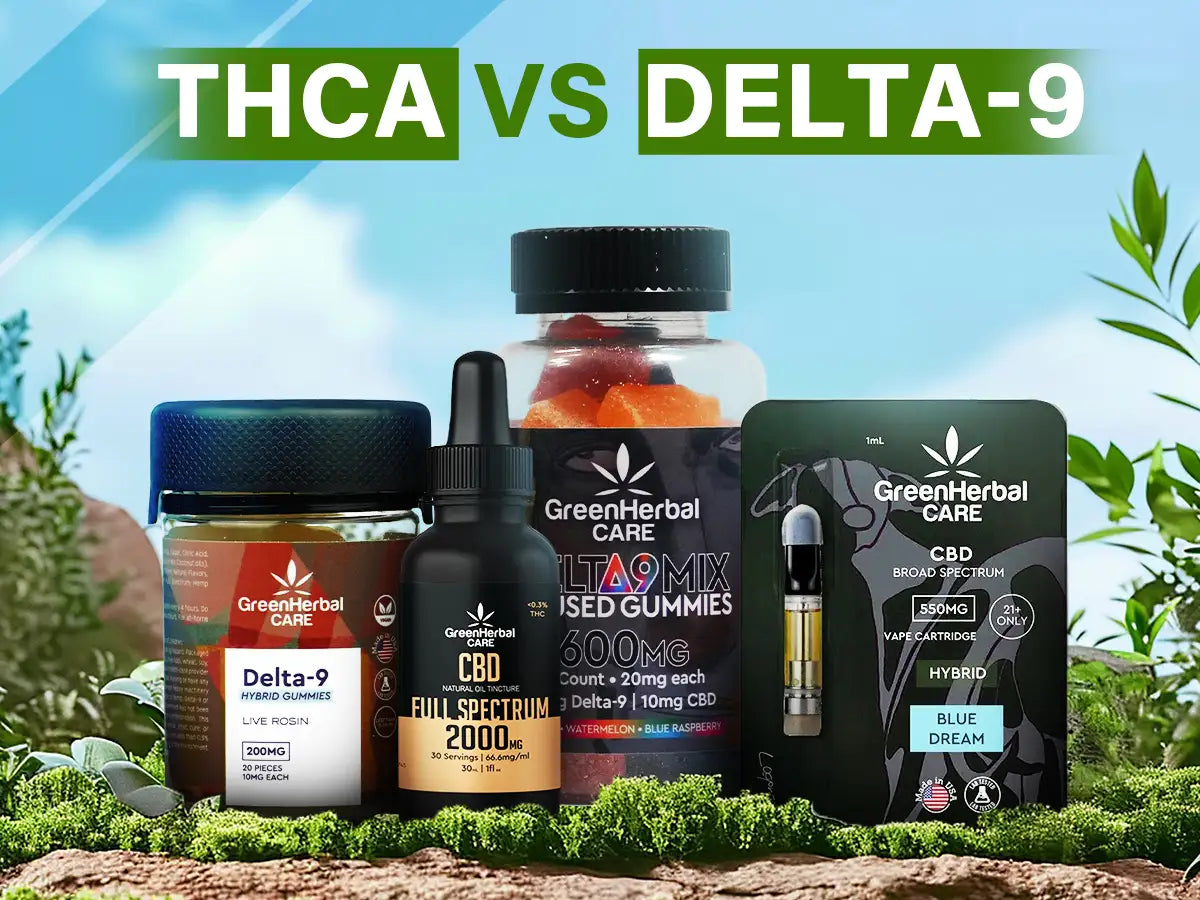When you think of cannabis, what comes to mind? For most, it’s the euphoric high associated with THC. But the cannabis plant is far more complex — and much more therapeutic — than just a buzz.
In this guide, we break down two important cannabinoids: THCA and Delta-9 THC, comparing their effects, legality, consumption methods, benefits, and therapeutic value backed by emerging science. Whether you're new to cannabis or a curious user looking to explore your options, this post gives you the clarity you need to make informed choices. You can also explore quality THCA for sale from trusted vendors online.
THC vs THCa in Flower: Know the DifferenceWhat Is Cannabis Sativa? Where Do THCA and Delta 9 Come From?
Cannabis Sativa is the source of both hemp and marijuana. The hemp variety is federally legal in the U.S. as long as it contains no more than 0.3% Delta-9 THC by dry weight, according to the 2018 Farm Bill. Hemp is rich in cannabinoids such as CBD, THCA, and Delta-9 THC, each interacting with your body’s endocannabinoid system (ECS) to influence mood, appetite, inflammation, and more. In fact, many customers buy THCA hemp flower online to enjoy raw or decarboxylated cannabis benefits legally.
What Are Cannabinoids?
Cannabinoids are compounds found in hemp that interact with the ECS, a complex cell-signaling system in the human body. This system plays a role in regulating a range of functions and processes, including mood, appetite, sleep, and immune response. While CBD is widely recognized for its therapeutic properties, research is expanding into other cannabinoids like THCA and Delta-9 THC to understand their unique effects and benefits.
Key Cannabinoids:
- CBD: Non-psychoactive; used in FDA-approved treatments like Epidiolex for epilepsy.
- Delta-9 THC: Psychoactive; produces the classic cannabis "high".
- THCA: Non-psychoactive in raw form; converts to THC when heated.
According to a 2020 survey by Statista, over 67% of U.S. adults support cannabis legalization, highlighting the rising awareness and interest in cannabinoid-based therapies.
THCA: The Non-Psychoactive Precursor
Tetrahydrocannabinolic acid (THCA) is the acidic precursor to Delta-9 THC found in raw, live hemp. In its natural state, THCA is non-intoxicating, meaning it doesn't produce the "high" associated with hemp use. However, it boasts several potential therapeutic benefits:
- Neuroprotective Properties: Research indicates that THCA may help protect brain cells, suggesting potential applications in neurodegenerative diseases.
- Anti-Inflammatory Effects: THCA has shown promise in reducing inflammation, which could be beneficial for discomforting mobility issues.
- Appetite Stimulation: It may aid in stimulating appetite, aiding those who don’t want to eat get an urge to eat.
It's important to note that while these findings are promising, more comprehensive human studies are needed to fully understand THCA's therapeutic potential.
Shop THCA Products
THCA: The Chemical Structure
THCA (tetrahydrocannabinolic acid) is present in the plant when harvested and dried. It is the predominant precursor to THC. THC comes from decarboxylated THCA. Decarboxylation is a natural process that occurs with aging hemp plants. Hence, longer-stored hemp flowers may develop higher levels of THC than they contained at the time of harvest.
Heating THCA manually also initiates the decarboxylation process, in which it loses a carboxyl group, converting it into the psychoactive compound THC. Manual decarboxylation involves any heating method, such as vaping, smoking, or cooking.
Delta-9 THC: The Popular Psychoactive Compound
Delta-9 THC is the primary psychoactive component in hemp responsible for the euphoric "high." It interacts with the ECS, particularly the CB1 receptors in the brain, leading to various effects:
- Euphoria and Relaxation: Many users report feelings of happiness and relaxation.
- Altered Perception: Delta-9 THC can change the perception of time and space.
- Increased Appetite: Commonly known as the "munchies," THC often stimulates hunger.
However, Delta-9 THC also has potential side effects, especially at higher doses:
- Anxiety and Paranoia: Some individuals may experience heightened anxiety or paranoia.
- Impaired Coordination: THC can affect motor skills, making activities like driving dangerous.
It's crucial to use and buy Delta 9 THC responsibly and be aware of its legal status in your area, as regulations vary by state and country.
Shop Delta 9 THC Products
THCA to THC: The Conversion
The conversion from THCA to THC relies on multiple factors such as time, temperature, and consumption method, each playing an integral role in determining the potency and effects of the product.
Temperature is the key, as specific temperatures significantly influence the chemical composition of the product. A higher temperature can convert THCA into a more potent THC.
Likewise, time is crucial. The duration for which THCA receives heat can influence its potency and effects. For instance, extensive exposure could result in a more potent THC conversion.
Additionally, the consumption method of these compounds affects how your body absorbs and processes them. Smoking, vaping, and ingesting provide varying potency and duration of effects.
Therapeutic Benefits
So, without the high, what does THCA provide? Since THCA is such a recent finding and field of research, there is still so much to learn about what it can do. What we do know, though, is promising.
There is very little anecdotal proof that it can produce neuroprotective qualities to help treat some of the causative conditions. Like other cannabinoids, THCA also helps with general wellness and balance because it is claimed to produce a healthier inflammatory reaction.
But we know much more about what Delta 9 THC does - and it's not merely "get you high." this cannabinoid has come under closer examination and found to help with:
Relief from pain: THC's action on the CB1 receptors of the nervous system can influence the perception of pain and provide relief from chronic pain illnesses.
Appetite Stimulation: They are typically prescribed to disease- or treatment-related low-appetite individuals like patients on chemotherapy.
Reduction of Nausea and Vomiting: THC is also employed to alleviate nausea, another reason why cancer patients undergoing chemotherapy or those suffering from gastrointestinal illnesses consume it.
Mood Boost: There is no secret that THC will calm stress and anxiety in proper dosages. The trick is not to do too much, or it will have the opposite effect at times.
Muscle Relaxation: Muscle spasm illnesses such as MS or Parkinson's disease can also be managed more effectively with the help of THC.
Does this make Delta 9 THC more medically savvy than THCA? Not on your life. We simply do not yet know all the things that the acidic version of this cannabinoid can do. And besides, you have to keep in mind that the benefits of actual THC are also in THCA once you decarboxylate it!
THCA vs Delta 9: Effects
Here’s a direct comparison of how both cannabinoids interact with your body:
Aspect |
THCA |
Delta-9 THC |
|---|---|---|
|
Psychoactivity |
Non-psychoactive in raw form |
Psychoactive; produces a "high" |
|
Conversion |
Converts to Delta-9 THC when heated (decarboxylation) |
Already active; no conversion needed |
|
Therapeutic Uses |
Potential neuroprotective and anti-inflammatory properties |
Used for discomfort relief, appetite stimulation, and nausea control |
|
Consumption Methods |
Juicing raw hemp, tinctures, capsules |
Smoking, vaping, edibles, tinctures |
|
Legal Status |
Generally legal in raw form; legality varies when converted |
Legal status varies by jurisdiction |
How Long Do Delta 9 Gummies Last?
How Does THCA Turn Into Delta 9?
The process is called decarboxylation, which removes a carboxyl group from THCA and converts it into psychoactive THC.
THCA Converts When:
-
Smoked or Vaped (instant conversion)
-
Cooked or Baked into edibles
-
Stored over time (slow conversion)
Without heat, THCA remains inactive. For example, juicing raw cannabis leaves can provide THCA without any psychoactive effects.
Consumption Methods: THCA vs Delta 9
THCA:
-
Raw flower (non-psychoactive unless heated)
-
Tinctures
-
Juices
-
Capsules
Delta-9 THC:
-
Edibles (gummies, chocolates)
-
Vapes
-
Smoking
-
Tinctures
-
Topicals (for localized relief)
For local options, explore hemp flower Texas for region-specific strains and delivery.
Legality: Is THCA Legal? What About Delta 9?
-
THCA: Federally legal under the 2018 Farm Bill as long as it's not decarboxylated. Some states restrict high-THCA hemp products.
-
Delta-9 THC: Legal only when derived from hemp and under 0.3% THC by dry weight. Otherwise, legality depends on state laws.
According to Leafly’s 2023 Cannabis Legalization Report, 23 U.S. states have legalized recreational cannabis, but THCA legality remains murky in many regions due to its convertibility into THC.
So Is THCa Better Than Delta 9?
We hope this TD breakdown of THCa and delta 9 THC provided you complete comprehension of where they're the same and where they're different. So is THCa better than delta 9? There is no better cannabinoid. That said, one is perhaps better for you.
THCa is best for someone who does not wish to have a psychoactive effect or someone needing a legally available cannabis product that may be metabolized and become THC. But if you can find delta 9 products, these will be a more immediate, guaranteed means of obtaining the cannabis effect.
At the end of the day, both cannabinoids have a place in cannabis culture, and the choice comes down to how you want to consume, what kind of effects you’re looking for, and what’s legal where you live.
Choose accordingly, and understand that regardless of what you do, you're getting more or less the same thing in the end if you're smoking, vaping, or dabbing!
Choosing Between THCA and Delta-9 THC
Your choice between THCA and Delta-9 THC depends on your desired effects:
- For Therapeutic Benefits Without the High: THCA may be suitable if you're seeking potential health benefits without psychoactive effects, but for that, you need to have it raw.
- For Psychoactive Effects: Delta-9 THC is appropriate if you're looking for the traditional hemp high, along with its associated therapeutic effects.
Always consult with a healthcare professional before starting any new supplement or treatment, especially if you have underlying health conditions or are taking other medications.
The Conclusion: THCA vs Delta 9 THC
The differences are intriguing because both cannabinoids have remarkable effects on the body.
THCA is non-psychoactive until heated, after which it transforms into Delta-9 THC. If you want to experience euphoric effects, Delta-9 is your best bet. If you desire quicker but short-lived effects, you may vape or smoke Delta-9 flowers, but if you want long-lasting results, eating edibles like Delta-9 live rosin gummies is ideal for you. If you are looking for pure therapeutic effects minus the high, buy THCA products online or from a reputable nearby store. Remember, smoking, vaping, or cooking THCA means you will get THC instead.
So, which is it going to be for you? If you have questions, feel free to contact our experts for guidance.
Frequently Asked Questions
Does THCA show up on drug tests?
Yes, if it's been heated. Drug tests screen for THC metabolites.
Which is stronger, Delta 9 or THCA?
Delta 9 is stronger in the sense that it produces immediate psychoactive effects. THCA must be converted to THC to achieve the same effects.
Does THCA really turn into Delta 9?
Yes, through a process called decarboxylation. Heat removes the carboxyl group from THCA, transforming it into psychoactive Delta-9 THC.
Are Delta 9 and THCA the same thing?
No. THCA is the acidic precursor to Delta-9 THC. They are chemically different, although THCA converts into Delta 9 when decarboxylated.
Does THCA give a high?
No, THCA in its raw form is non-psychoactive. It only becomes intoxicating if heated, which converts it into Delta-9 THC.


